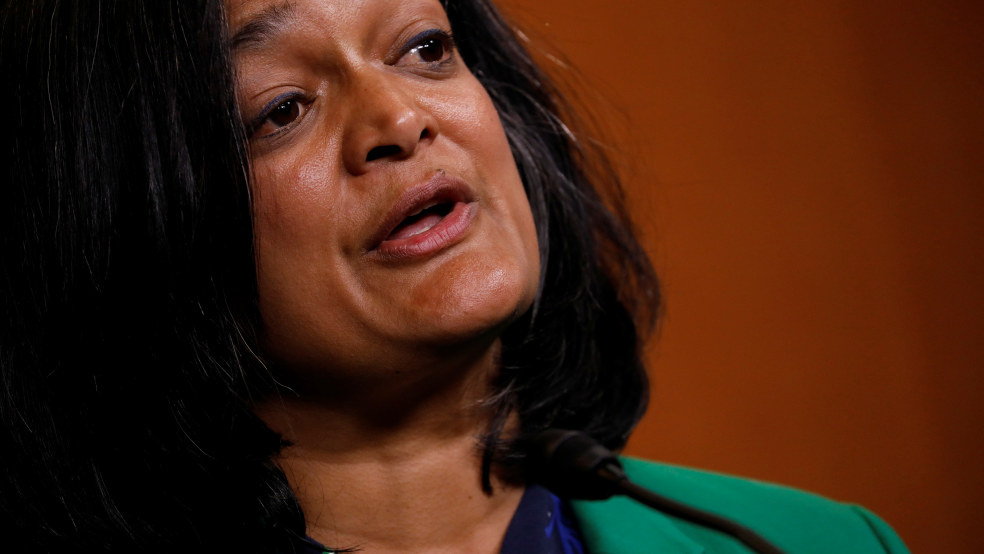Democratic leaders in the House postponed an expected Wednesday vote on a 2020 spending bill after progressives within the party pushed for higher levels of domestic spending. House Majority Leader Steny H. Hoyer (D-MD) said that the vote would take place at some point after the upcoming two-week recess.
Leaders of the 90-member strong Congressional Progressive Caucus said Tuesday that they would vote to kill the Budget Committee’s current budget plan, which provides more discretionary funding for defense ($664 billion) than it does for nondefense programs ($631 billion).
Echoing a well-established liberal criticism of recent spending deals, the Progressive Caucus wants equal funding for both sides of the discretionary budget. “This is not a hard ask — this is a $33 billion increase [in nondefense spending],” Rep. Pramila Jayapal (D-WA), co-chair of the caucus, said Tuesday. “Here’s a real opportunity to tell people we are investing in their future and not in a Pentagon . . . that is increasingly wasteful and hasn’t conducted an audit. . . . We say we’re for the people; we have to be for the people.”
A long-standing pattern: Most federal budgets in the last few decades have devoted a larger share of discretionary spending to defense. The 10-year spending caps imposed in 2010 stuck to that pattern, even as lawmakers agreed in recent years to increase spending well beyond the levels imposed by the caps, with the gap between defense and nondefense growing under President Trump’s military buildup.
Progressives flex their muscles: The disagreement marks a new stage in what’s shaping up to be a power struggle between centrist and left-leaning factions within the Democratic Party. “The threat marks the first time in the new majority that progressives are deploying the full weight of their caucus to demand substantial policy changes and sets up a major showdown with House Speaker Nancy Pelosi and her deputies,” Politico’s Sarah Ferris, Heather Caygle and John Bresnahan wrote.
House Budget Committee Chairman John Yarmuth (D-YK) said the budget bill would be a test of party unity as Democrats settle in to control of the House. “We have to figure out whether we’re going to be able to govern — this is a first testament,” Yarmuth said Tuesday, adding that it wouldn’t be “a positive sign” if the bill is shot down by the progressive caucus.
But it’s all about the budget negotiations: Ultimately, House Democrats need to reach a deal with the Republican-controlled Senate and President Trump, with their budget plan serving an opening bid in the negotiation process. Progressive Caucus member Rep. Mark Pocan (D-WI) argued that asking for more discretionary nondefense spending would give Democrats a stronger hand in the process. “We do think that if you’re going to be negotiating you should be negotiating in your strongest place, and the strongest place is to say we want more nondefense spending,” Pocan said Tuesday.
Separately on Tuesday, Senate Majority Leader Mitch McConnell (R-KY) announced that he and House Speaker Nancy Pelosi (D-CA) had agreed to begin negotiations on raising the budget caps for 2020 and 2021. McConnell said there was a "bipartisan desire" to avoid the automatic spending cuts imposed by the caps, and also to avoid the need for yet another short-term spending bill at the end of the fiscal year in September. "So I'm hoping this will be the beginning of a bipartisan agreement, which will be necessary in order to have an orderly appropriations process, not only this year, but next year as well," McConnell said.




